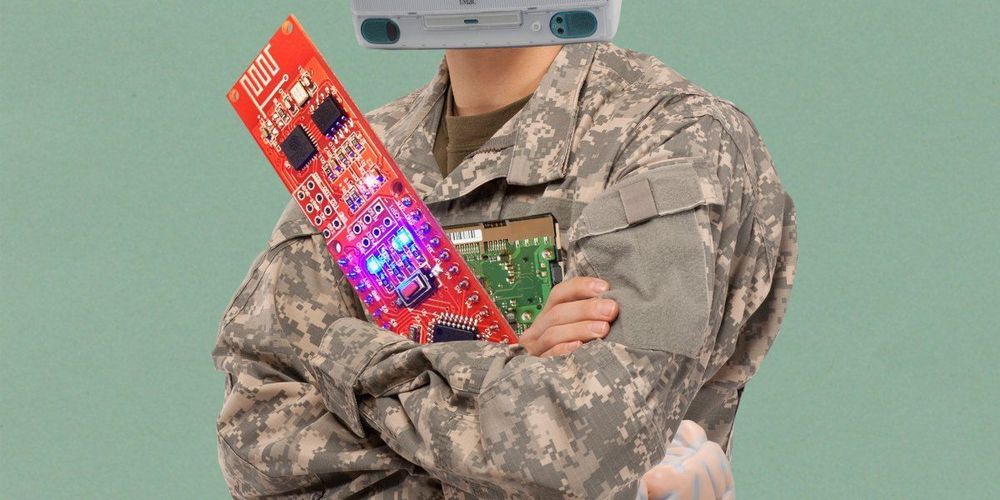Gertrude the pig is a prototype of a brain-to-machine interface.
Category: computing – Page 738

Neuralink: Elon Musk unveils pig he claims has computer implant in brain
The tech entrepreneur Elon Musk on Friday showed off a pig whose brain he says has been implanted with a small computer.
“We have a healthy and happy pig, initially shy but obviously high energy and, you know, kind of loving life, and she’s had the implant for two months,” Musk said of Gertrude, the pig.
The billionaire entrepreneur, whose other companies include Tesla and SpaceX, presented during a live-stream event to recruit employees for his neuroscience startup Neuralink. He described Gertrude’s coin-sized implant as “a Fitbit in your skull with tiny wires”.

Caltech Innovations Using Alkaline-Earth Atoms Pave the Way for New Quantum Computer Designs
Physicists’ latest achievement with neutral atoms paves the way for new quantum computer designs.
In the quest to develop quantum computers, physicists have taken several different paths. For instance, Google recently reported that their prototype quantum computer might have made a specific calculation faster than a classical computer. Those efforts relied on a strategy that involves superconducting materials, which are materials that, when chilled to ultracold temperatures, conduct electricity with zero resistance. Other quantum computing strategies involve arrays of charged or neutral atoms.
Now, a team of quantum physicists at Caltech has made strides in work that uses a more complex class of neutral atoms called the alkaline-earth atoms, which reside in the second column of the periodic table. These atoms, which include magnesium, calcium, and strontium, have two electrons in their outer regions, or shells. Previously, researchers who experimented with neutral atoms had focused on elements located in the first column of the periodic table, which have just one electron in their outer shells.
People Power Increase Processing Speed
Big initiatives to understand the workings of the brain
Neuroscience has a data problem. In our efforts to understand the brain researchers are generating ever greater amounts of data. The problem is, how can they gain meaning from it?
A recent study, that used functional magnetic resonance imaging (fMRI) data to produce the most detailed map to date of the human cortex, looked at data from 210 peoples’ brains. The researchers estimated that equated to 30 gigabytes of data per participant. Meaning over 6 terabytes of data were analyzed to form the map, and this was a study of a large section of cortex, not the whole brain.
DARPA Launches Project CHARIOT in Bid to Shield Big Tech Profits
DARPA announces a new type of cryptography to protect the Big Tech firm profits from the dawn of quantum computers and allow backdoor access into 3 trillion internet-connected devices.
by Raul Diego
The U.S. Military-Industrial complex is sprinting on a chariot to shore up the encryption space before the next era of computation upends the entire digital edifice built on semiconductors and transistors. But, the core of the effort is protecting markets for Big Tech and all of its tentacles, which stand to lose years or even decades of profits should the new tech be rolled out too quickly.

Elon Musk Says First Demo Of His Brain Chip Is Coming This Friday
Elon Musk’s controversial ‘brain chip’ might be coming to us sooner than we first thought, with the technology entrepreneur promising a working demo by the end of this week.
The news comes a little over a month after Musk announced his latest start-up, Neuralink, was in the process of developing a brain-computer interface that allegedly has a life-changing range of benefits – including the ability to stream music straight into your brain.
Now, Neuralink, which has already received more than $158 million in funding, will be demonstrating a working device this coming Friday, August 28, at approximately 6.00pm ET (11.00pm BST).

The US military is trying to read minds
Elon Musk’s Neuralink will likely show off its design for a brain-computer interface Friday evening. The concept it unveiled last summer involves surgically implanting it into the brain to detect the activity of neurons. The US military also wants to develop a brain-computer interface, as we explain in this story from October. But here’s the kicker: no surgery required—and the device could be put on and taken off like a helmet or headband.
In August, three graduate students at Carnegie Mellon University were crammed together in a small, windowless basement lab, using a jury-rigged 3D printer frame to zap a slice of mouse brain with electricity.
The brain fragment, cut from the hippocampus, looked like a piece of thinly sliced garlic. It rested on a platform near the center of the contraption. A narrow tube bathed the slice in a solution of salt, glucose, and amino acids. This kept it alive, after a fashion: neurons in the slice continued to fire, allowing the experimenters to gather data. An array of electrodes beneath the slice delivered the electric zaps, while a syringe-like metal probe measured how the neurons reacted. Bright LED lamps illuminated the dish. The setup, to use the lab members’ lingo, was kind of hacky.

Artificial Kidneys Are a Step Closer With This New Tech
Our kidneys are crucial for keeping us alive and healthy. A sort of chemical computer that keeps our blood chemistry stable—whether we’re eating a sugary birthday cake or a vitamin-filled salad—they prevent waste buildup, stabilize our electrolyte levels, and produce hormones to regulate our blood pressure and make red blood cells.
Kidneys clean our blood using nephrons, which are essentially filters that let fluid and waste products through while blocking blood cells, proteins, and minerals. The latter get reintegrated into the blood, and the former leave the body in urine.
Scientists have struggled to come up with viable treatments for kidney disease and renal failure, and their complexity means kidneys are incredibly hard to synthetically recreate; each kidney contains around one million intricately-structured nephrons.

Neuralink event: what to know about Elon Musk’s highly-anticipated reveal
NEURALINK, ELON MUSK’S HUMAN-BRAIN LINKUP FIRM, WILL HOLD AN EVENT THIS WEEK – and it’s expected to feature a demonstration of the brain’s neurons firing in real-time.
The secretive firm has been relatively quiet since its first public event in July 2019, when Musk and his team explained how the firm plans to use chips to link human brains up to computers. In July 2020, Musk revealed that the company was planning a second event for Friday, August 28. He also reiterated the company’s mission statement: “If you can’t beat ‘em, join ‘em.”
Neuralink is set to hold its next event this week. Here’s what you need to know about the human-brain linkup firm’s plans.

Intel Advances On The Road To Quantum Practicality
Clarke urges other companies to also get ready now by investing in developing a quantum-ready workforce. “Quantum computing requires a specialized workforce, expertise that is pretty rare today,” he says. Clarke also advises companies to work with government agencies that are sponsoring quantum computing experiments and to fund quantum research in universities. He also supports nation-wide initiatives to spread the word all the way down the education system, even to high-school students, “so people aren’t scared or intimidated by the word quantum.”
Intel aims to achieve quantum practicality—commercially-viable quantum computing—by the end of this decade.